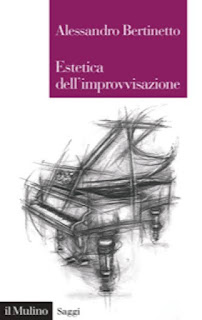Music Improvisation and Creation
Human and Computational
October 20 – 23, 2021
Ascea, Italy
~ call for papers ~
We have been, like several others, compelled to postpone the XIth WE
symposium, please notice the new dates; consequently submissions are also
accepted until September 15.
These two terms,
‘improvise’ and ‘create’, are in frequent use, not only in several, but in many
dis-parate ways and their nature, analysis and description currently come to a
head by the efforts to translate them into AI. So first, in order to decide if
all – and in particular these – human capacities are computable, one has to get
beyond the notoriously vague conceptions and cavalier uses of them. How are
they distinguished from inventions, inspirations, impulses, experiments,
accidents, discov-eries, etc.? What are the criteria for their descriptive or
their occasional uses? Are they co-extensive, inter-dependent, conceptually
distinguishable? Is creation always or generally the product of im-provisation?
Is improvisation dependent on a learning process that may or may not lead to a
creative product? Is it consistent and/or useful to (attempt to) define
creativity?
Several projects
are underway to install these capacities in (students as well as in) machines;
since the success of some of these (particularly in music), we need to ask how
human and machine improvisations relate, and whether they do. Are improvisation
and creation teachable? Are they temporary or permanent capacities? Can one
acquire talent? Can a machine be(come) talented? Can machines improvise in the
sense that humans do, can they co-improvise, and is there a valid general
approach to understanding or evaluating machine improvisation? Its musicality?
In what way does
it make sense to describe or analyse the activity of improvisation? Can improv-isation
be reduced to parameters? Is improvisation a general or particular category of
action or performance? Is musical improvisation a particular kind? Can a
computational improviser system trained in music then be applied to improvise
in other kinds of activities such as decision-making in (all?) other AI
programs? This call is for original and detailed examinations of the content
and logic of the concepts of ‘improvisation’ and ‘creation’.
The XIth International Wassard Elea Symposium,
held in Ascea, Southern Italy, invites musicologists,
computer scientists, musicians, artists, philosophers and other interested
parties to submit papers on the topics of this year’s theme. Sessions of 90
min. include speaker, commentator and open discussion (40/20/30). Participants
whose papers are accepted are expected to also prepare a commentary on another
presentation at the meeting. All suitable contributions are published in our
journal, Wassard Elea Rivista.
New deadline for submissions: September 15, 2021.
There is no
registration fee; participants will receive details about accommodation rates
in due course.
Inquiries are very welcome. Full papers (attached in Word format) should be sent directly to the organizers:
Dr. René
Mogensen, Birmingham City University, England: Rene.Mogensen@bcu.ac.uk,
or
Prof. Lars
Aagaard-Mogensen, Italy: wassardelea@gmail.com.
Notice: At this time you are additionally invited to submit chapters, original
work, to the forthcoming anthology on Improvisation and Creation: Music, Arts,
and AI. Please send works, proposals etc. to Dr. René Mogensen, Birmingham City
University, England: Rene.Mogensen@bcu.ac.uk.
Wassard Elea
Refugium for writers, artists, composers, and scholars
in Southern Italy
Wassardelea.blogspot.it




